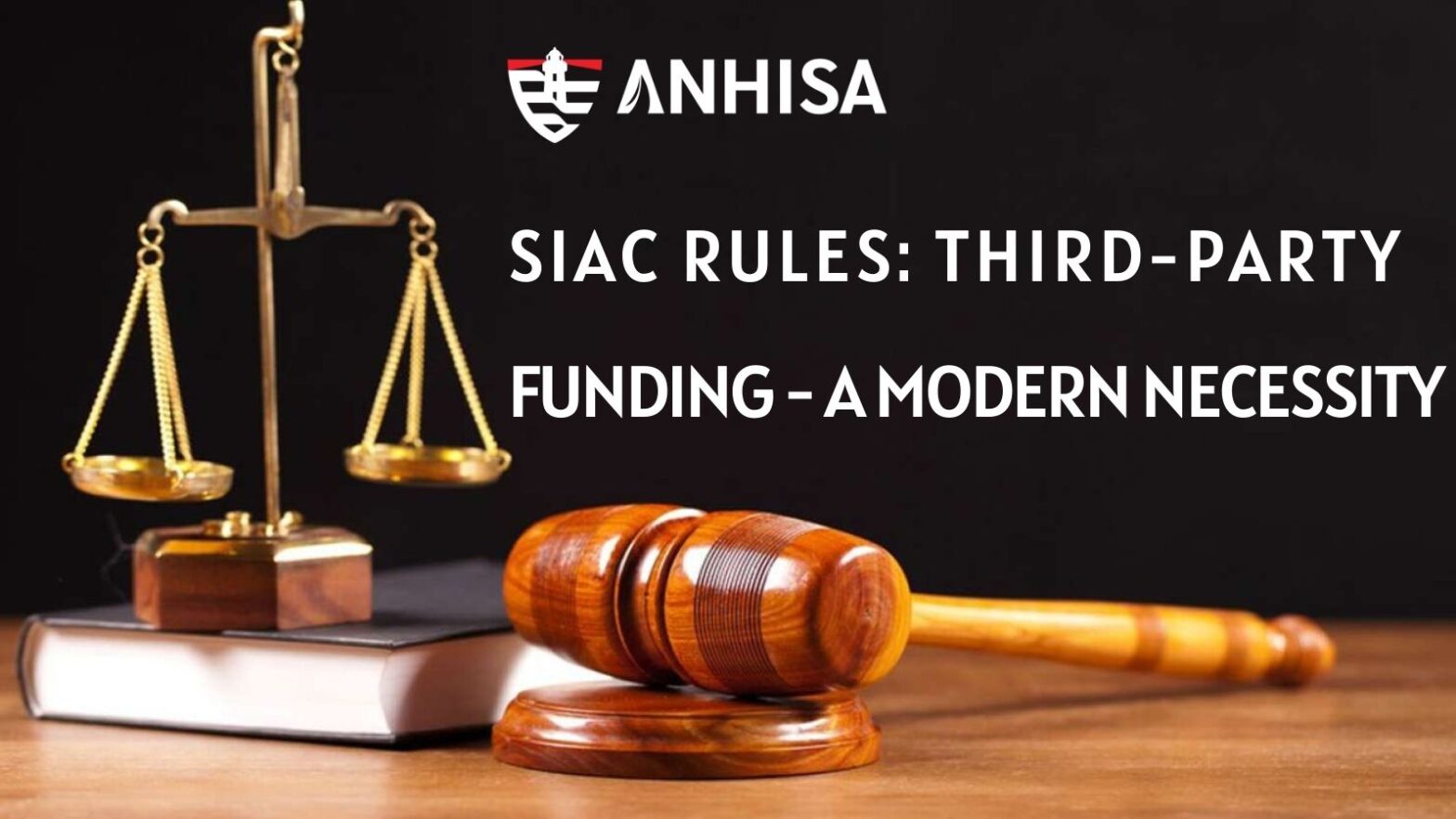Foreword
In the rapidly evolving landscape of international arbitration, arbitration centers must constantly innovate to address emerging challenges and meet the diverse needs of their users. The Singapore International Arbitration Centre (“SIAC”) has consistently demonstrated its ability to stay ahead of the curve, and the introduction of the SIAC Rules 2025 exemplifies this commitment.
Among the most noteworthy developments are the provisions addressing third-party funding (“TPF”) and the enhanced regulation for tribunal secretaries. These updates reflect SIAC’s proactive approach to aligning its rules with global best practices while ensuring greater transparency, fairness, and procedural efficiency.
The inclusion of Rule 38, requiring the disclosure of TPF arrangements, underscores SIAC’s dedication to ensuring a fair and impartial arbitration process. As TPF becomes a vital tool for claimants and respondents alike, this provision strikes a balance between enabling access to justice and safeguarding the integrity of arbitration proceedings.
This regulation not only highlights SIAC’s forward-thinking approach but also offers a comparative analysis of how these updates position SIAC among leading institutions, such as the ICC, ICSID, NYIAC, LCIA, ACICA, HKIAC, and major arbitration hubs like London and New York.

The Rise of TPF in Arbitration
TPF is a financial arrangement where an external entity with no prior interest in a legal dispute provides funding to one of the parties, usually the claimant, to cover legal and arbitration-related expenses. This funding is typically offered on a non-recourse basis, meaning the funder only recovers its investment if the claim succeeds. Originating in Australia as a way to ensure access to justice for financially constrained claimants, TPF gained traction in the United Kingdom and the United States in the early 21st century. Today, it has expanded globally to regions like Singapore, Hong Kong, Europe, and Latin America, evolving into a mainstream tool for managing legal risks and costs.
TPF has become increasingly prevalent in international arbitration, enabling parties with limited financial resources to pursue meritorious claims. However, its rise also introduces concerns about conflicts of interest, transparency, and the potential for abuse.
Claimants, funders, lawyers, and brokers are the main players in third-party funding. TPF is commonly used to cover costs such as legal fees, expert expenses, and arbitration-related charges. Beyond this, it helps claimants secure working capital, manage liabilities, or fund unrelated disputes. Initially aimed at aiding financially struggling parties, TPF is now widely adopted by large corporations to optimize budgets and mitigate risks. Lawyers often assist claimants in navigating funding opportunities, while brokers connect parties with suitable funders. Although rare, respondents may also seek funding for counterclaims or to address liabilities in specific cases like investor-state disputes.[1]
SIAC’s Proactive Stance
The introduction of Rule 38 in the SIAC Rules represents a pivotal step forward. This rule mandates the disclosure obligation of any third-party funding arrangements, including the identity of the funder and their potential economic interests in the outcome of the arbitration. Such disclosure ensures:
- Transparency: Parties and arbitrators are aware of all stakeholders, reducing the likelihood of conflicts of interest.
- Fairness: The arbitral process remains impartial, with no undue influence from undisclosed financial backers.
- Efficiency: Early disclosure allows the tribunal to address any procedural concerns promptly, avoiding delays later in the proceedings.

Comparative Analysis: SIAC vs. ICC, and other institutions based in Hong Kong, London, and New York
In addressing third-party funding, SIAC’s Rule 38 is in line with global trends:
- ICC: The inclusion of Article 11(7) in the ICC Rules (2021)[2] underscores the institution’s commitment to fostering transparency and reducing ethical concerns arising from third-party funding (TPF). The ICC Rules similarly require disclosure of TPF arrangements, emphasizing conflict checks and transparency.
- Hong Kong: Hong Kong’s legislative framework explicitly permits TPF in arbitration under the Arbitration and Mediation Legislation (Third Party Funding) (Amendment) Ordinance 2017, which came into full effect on 1 February 2019. The ordinance removes common law prohibitions on maintenance and champerty in relation to TPF for arbitration, thereby enhancing Hong Kong’s appeal as an international arbitration hub[3].
- London: In England, TPF in arbitration is recognized, but the regulatory framework relies more heavily on judicial precedents and voluntary guidelines, such as the Code of Conduct for Litigation Funders[4]
SIAC Rules 2025 reflect the institution’s responsiveness to the complexities of modern arbitration. By regulating tribunal secretaries and TPF, SIAC addresses two critical areas that have significant implications for procedural efficiency and fairness.
These updates position SIAC as a leader among international arbitration institutions. By offering clear, transparent, and party-friendly rules, SIAC strengthens its reputation as a premier arbitration hub.
While maintaining the foundational principles of arbitration, the revised rules also embrace contemporary developments. This balance ensures SIAC remains relevant and appeals to a diverse range of users.
Conclusion
The amendments to the SIAC Rules, particularly regarding tribunal secretaries and third-party funding, demonstrate a thoughtful evolution of its arbitration framework. By addressing prior ambiguities and aligning with global best practices, SIAC reinforces its commitment to procedural integrity and efficiency. As international arbitration continues to evolve, these forward-looking rules ensure that SIAC remains at the forefront, meeting the needs of modern users while upholding its reputation for excellence.
[1] International Council for Commercial Arbitration, Report of the ICCA-Queen Mary Task Force on Third-Party Funding in International Arbitration, ICCA Reports No. 4 (April 2018).
[2] Article 11 (7) of ICC Arbitration Rules (2021)
In order to assist prospective arbitrators and arbitrators in complying with their duties under Articles 11(2) and 11(3), each party must promptly inform the Secretariat, the arbitral tribunal and the other parties, of the existence and identity of any non-party which has entered into an arrangement for the funding of claims or defenses and under which it has an economic interest in the outcome of the arbitration.
[3] The Government of the Hong Kong Special Administrative Region, “Code of Practice for Third Party Funding of Arbitration issued” (7 December 2018. Available at
https://www.info.gov.hk/gia/general/201812/07/P2018120700601.htm, accessed 20 February 2025.
[4] Association of Litigation Funders, Code of Conduct for Litigation Funders (January 2018) https://associationoflitigationfunders.com/wp-content/uploads/2018/03/Code-Of-Conduct-for-Litigation-Funders-at-Jan-2018-FINAL.pdf accessed 20 February 2025.
ANHISA LLC AND OUR EXPERTISE
ANHISA LLC is a boutique law firm specializing in Dispute Resolution, Shipping and Aviation. Being the leading lawyers in various fields of law, our qualified, experienced, and supportive team of lawyers know how to best proceed with a case against or in relation to Vietnamese parties and are well equipped to provide clients with cost-effective and innovative solutions to their problems.
Regarding dispute resolution, we have represented Vietnamese and foreign clients in the resolution of disputes involving maritime, construction, commercial and civil matters. Our lawyers are well-equipped to offer services on a wide range of disputes and conflicts, whether cross-border or purely domestic, to appear before any Judges or Arbitral Tribunals. The firm is prepared to assist clients in designing the appropriate dispute resolution procedure to help resolve conflicts as efficiently and cost effectively as possible, which may involve combining elements of mediation and other methods such as arbitration.
AUTHORS
DANG VIET ANH
Managing Partner
Mobile: (+84) 983 467070
Email: [email protected]
TRUONG CONG HONG
Senior Associate
Mobile: (+84) 909 814090
Email: [email protected]
NGUYEN THI THAO VAN
Associate
Mobile: (+84) 383 552680
Email: [email protected]
This article aims to furnish our clients and contacts with general information on the relevant topic for reference purposes only, without creating any duty of care on the part of ANHISA. The information presented herein is not intended to serve, nor should it be considered, as a substitute for legal or other professional advice.
